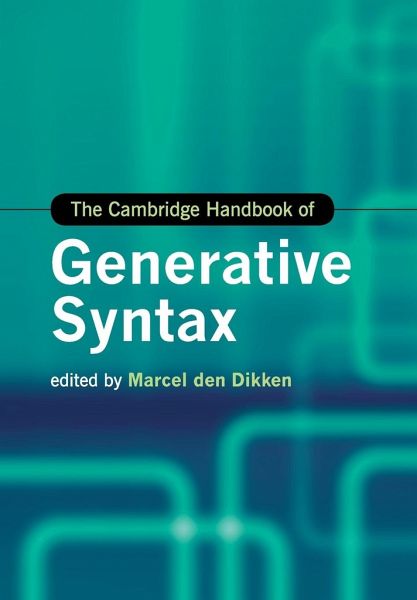
The Cambridge Handbook of Generative Syntax
Versandkostenfrei!
Versandfertig in 1-2 Wochen
69,99 €
inkl. MwSt.

PAYBACK Punkte
35 °P sammeln!
The Cambridge Handbook of Generative Syntax


Rechnungen
Bestellstatus
Retourenschein
Storno